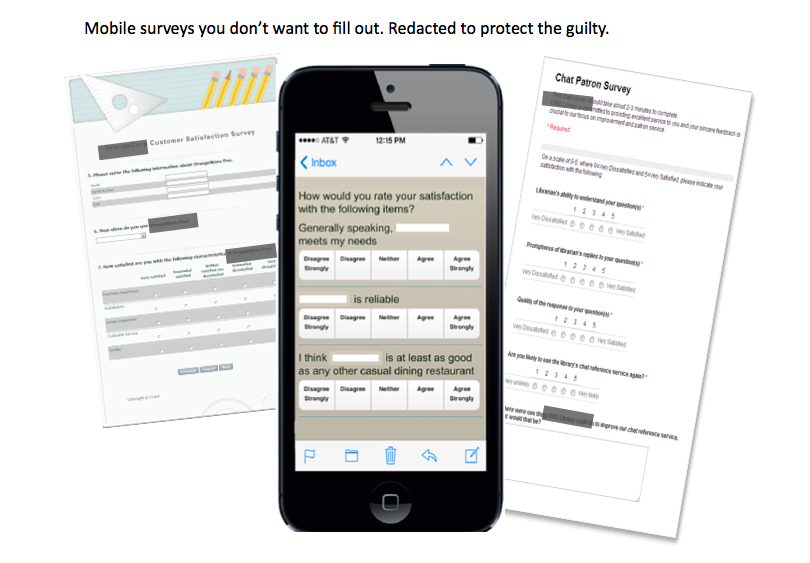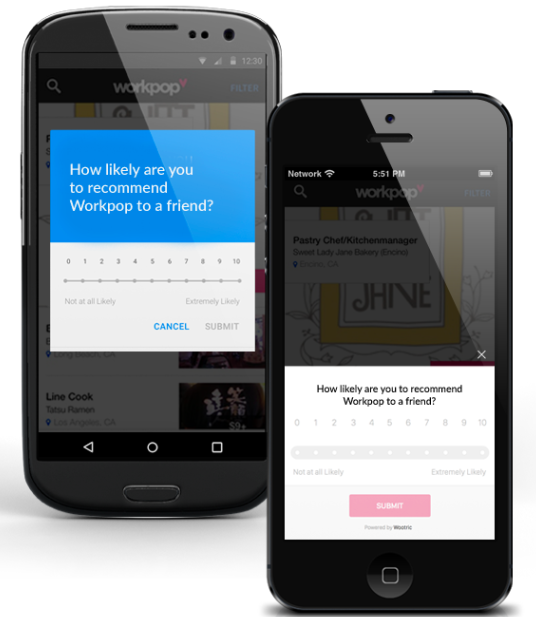When I was growing up, a 50-cent, bottomless cup of coffee was the norm. People would have laughed at the thought of a five-dollar cup of joe, and yet how many of us drive out of our way to find a Starbucks to start our day? In the case of Starbucks, it is not even about the quality of their coffee. You can go to the grocery store and purchase the same coffee there, yet people flock to Starbucks stores because they provide an experience and not just a cup of coffee.
Today, the coffee shop is an iconic gathering place. From the moment you walk in, the aroma of the coffee surrounds you. The environment in the store is calm, relaxing and inviting. The store invites you to stay and relax for long periods, and many people stay to study, work, check their e-mail, update their social media account, surf the web, or share some time with friends. The servers are not called servers; they are “baristas,” adding to the sense that you are doing more than just grabbing an ordinary cup of coffee. Each cup is prepared individually and the customer’s name is written on the cup to personalize the experience.
In other words, the product is not the focal point; rather, the focal point is the experience that the company delivers.
Successfully delivering a good customer experience requires a comprehensive orchestration of a great many things. One of the most essential to the backbone of your CX program is a thorough understanding of the customer and his or her experience with your brand, people, product and service — a process popularly known as customer journey mapping.
Starbucks knows its customers well. It has a well-mapped journey of what the experience will be like from the moment the customer walks into the store. By selling more than just a product, the company is able to charge 5-10 times what a competitor could and still attract more customers. Starbucks clearly understands that focusing on the customer experience is not just a corporate tagline for shareholders. It is a business strategy.
What Is a Customer Journey Map?
A customer journey map is a visual representation of the journey a customer has with your brand, products, services and people. It is important to note that journey mapping is not an appropriate replacement for quantitative efforts, but rather a good starting point or supplement to quantitative programs. It includes multiple touchpoints from the customer’s point of view, such as:
- Key moments and evaluation points in the process
- Positive and negative components of the experience
- Attitudes and emotions that may come into play
Step One: Build the Company View of the Journey
Mapping the customer’s journey starts with identifying and building out the steps of the journey from the company’s point of view, from beginning to end. Start by identifying the key moments a customer has with the company. Getting agreement on the discrete steps a customer takes can be difficult, as each functional area and stakeholder will bring a unique perspective to the table. It is critical for the organization to work off a common vision of the journey, so measurements, improvements, and enhancements must be created using a shared framework.
Building out the steps
Once the steps of the journey are identified, build out the experience of each step, including the following elements:
- Customer’s desired outcomes
- Time or duration
- Attitudes and thoughts
- Emotional responses
- Emotional needs
- Customer pain points
- Areas of weakness
- Areas of strength
- Importance of the step
- Satisfaction with the step
Though some might argue that this process is overkill for organizational stakeholders to go through, the elements of this process enable a more educated approach to the secondary probing and qualitative research phase. Additionally, the process of including all stakeholders embeds customer journey mapping within the cultural framework of the organization. As stakeholders help build the journey, hear different perspectives from their peers, and eventually see the customer’s perspective of the journey, they are more likely to understand and accept the final product. Finally, it is very insight-provoking at the end of the process to highlight the differences in what the customer sees as critical moments and evaluation points in the journey compared to company stakeholders.
Customer-Centric Blueprint
A by-product of customer journey mapping is a customer-centric blueprint, which highlights customer experiences that lead to a decision or behavior that impacts financial outcomes for the organization. A customer-centric blueprinting process involves:
- Determining what critical elements are impacting each step in the journey
- Identifying all people and departments who are even remotely connected to this element
- Identifying the policies, processes, procedures and tools that impact this element
- Listing all internal metrics associated with this element of the step, which can serve as early indicators of a good or bad experience by the customer before they even take a survey
Step Two: Build the Customer View of the Journey
Once the internal stakeholders have created their view of the customer journey, it is time to have the end customer validate this framework. A series of qualitative research sessions are usually helpful for this purpose. In these sessions, customers walk through their version of what the journey looks like, using all the same criteria used by internal stakeholders.
During or prior to the interview, customers may also be asked to:
- Create a collage, drawings or photos that illustrate how they feel about the experience they have when dealing with the brand, category, product, service or people. (See an illustration below of one perspective on air travel.) The use of imagery adds a richer perspective to the experience, which can elicit deeper insights than verbal cues alone.
- Share metaphors that describe what their emotional needs are at each step. These can come from a standard list, or they can share their own. This part of the process creates a clear delivery goal for the company at each step of the journey.
Step Three: Review the Current State
The next phase of the journey-mapping process often takes the form of a workshop, during which the customer journey is reviewed, while keeping the following objectives in mind:
- Create a common understanding of the customer journey
- Identify areas within the experience with the greatest opportunity to improve/address
- Identify elements that should be included in the VoC program
- Review the design criteria for improvements and development of new experiences
- Prioritize the steps in the journey that should be addressed
This step is critical for embedding the journey into the organization. It involves immersing participants in the qualitative research in a way that helps them step into the shoes of their customer. In order to do this, the room where this final workshop is conducted is turned into a customer gallery, which may contain detailed summaries of each step in the journey, customer quotes from the qualitative research, any photos or imagery created or solicited during the research, and any relevant previous research that contributes to the organization’s understanding of the customer journey.
Once this information is absorbed, it is time to prioritize the areas the company considers more important to focus on for improvement. Among the improvement opportunities is the chance to evaluate the current VoC measures against what customers identified as their key moments of the experience. This process can either validate the current measures or identify gaps that need to be filled with VoC tools.
Step Four: Create Customer Experience Design Criteria
You now have detailed journey maps, photos, interview transcripts, previous research, customer quotes, etc. How do you make sense of this and avoid everyone running in a different direction to improve the customer experience?
Creating common customer experience design criteria helps prevent organizations from becoming overwhelmed. Customer experience design criteria are the three or four top criteria that serve as the essence of what customers need in any experience they have with your organization. These criteria are derived from analyzing the attitudes, thoughts, emotions, and needs of customers at each step in the journey, and then identifying a few common themes that represent the essence of what the customer needs. For example, the design criteria for a business technology supplier may look like the following:
- Proactively identify solutions that add success to the business owner
- Be impressively responsive
- Remove the technology burden from the business owner
- Make every interaction professional
Each of these represents what the business owners conveyed throughout the journey. By creating common design criteria, everyone in the organization can now use these as criteria that should be met in any customer-impacting service, tool or interaction. Additionally, marketing and customer-facing communications should also reinforce the same criteria so that there is better alignment with every customer touchpoint.
Step Five: Ideate a Future State
The final phase in the customer journey mapping process is to leverage the new insights and design a better customer experience. One of the greatest challenges in any customer experience program is achieving true organizational commitment and buy-in. It is not that companies are against having a customer focus; quite the contrary. The challenge is getting the attention of stakeholders who are stretched so thin that it is difficult to get their attention. But the benefits of engaging stakeholders in customer journey mapping gives them a vested interest in the process and increases their common knowledge of the customer experience well beyond where it was.
The final step is to leverage this insight and engagement into the design of a better customer experience. This is done through ideation. Unlike brainstorming, ideation is structured so that it can take participants beyond their current framework of thinking and view solutions through different lenses using the customer experience design criteria previously identified. While ideation is intended to unleash creative thinking, the design criteria help ensure the thinking is focused on what the customer needs the new solutions to address.
While there are entire books written on ideation alone, here are a few of approaches with very brief descriptions:
TOP MIND IDEAS: People throw out top of mind ideas (these tend to be very incremental/not very innovative, but allow people to get the pent up demand ideas out of them).
PICK YOUR PROBLEM: Split up into groups — each group picks two to three high priority problems/opportunities identified in the journey mapping. Each group then develops as many ideas as they can around their selected items.
RELATED WORLDS: After breaking into smaller groups, each group picks an industry outside of the one where they operate. Each group then identifies the characteristics of the selected industry, focusing on how that industry generally solves its key problems (e.g., cell phone companies require contracts for additional service, they offer the phone for free or at a steep discount based on a two year contract, etc.). The intent is then to leverage the list of characteristics to ideate around how companies in the related industry would apply their thinking to solve the problems at hand in your business.
Get Fired/Get Hired High Risk — High Reward Ideas/Far Out Ideas.
GET FIRED: Moderator encourages participants to generate ideas that are so outrageous that in a normal meeting you would “get fired” for bringing them up.
GET HIRED: Moderator asks the group for ideas that scale the outrageous ideas back to something for which you would “get hired.” The intent is to give participants the license to bring up ideas that normally they may be too cautious or prudent to do.
Idea Tournament Session
The last step in the ideation process is to take the mountain of concepts and evaluate them in order to whittle them down to something more manageable. A structured process of voting is used based on top-of-mind reactions and tied to the design criteria. Different targets can be set, but generally allow people to vote for 10% of the ideas. Once this is complete, a process of evaluating the ideas on criteria such as customer need, revenue potential, feasibility, ability to create a sustainable competitive advantage and time to implement (or other gauges that are relevant to the organization) is completed. The output is a “portfolio” of ideas that includes some ideas with “breakthrough” potential (high risk — high return), and others that are more incremental in nature (low risk — low return).
Conclusion
The end result of conducting a thorough customer journey mapping process is a more comprehensive understanding of the experience your customer has with your organization, insights in the areas that need to be addressed, ideas on how to improve the experience, and a common understanding of the experience your customers have with your organization. Walking out of this process, you will also have the following outputs to continue to guide the organization’s journey to improve the customer experience:
- Journey Map: Company view of the customer journey
- Journey Map: Customer view of the journey (both a detailed version and a more aggregate version that can be shared more broadly across the organization)
- A customer-centric blueprint
- A common set of customer experience design criteria
- A portfolio of new ideas to improve the customer experience (both short term tactical ideas and longer term break-through ideas)
- Transcripts of interviews
- Visuals created by customers
- A list of measures to consider adding to new or existing VoC efforts










